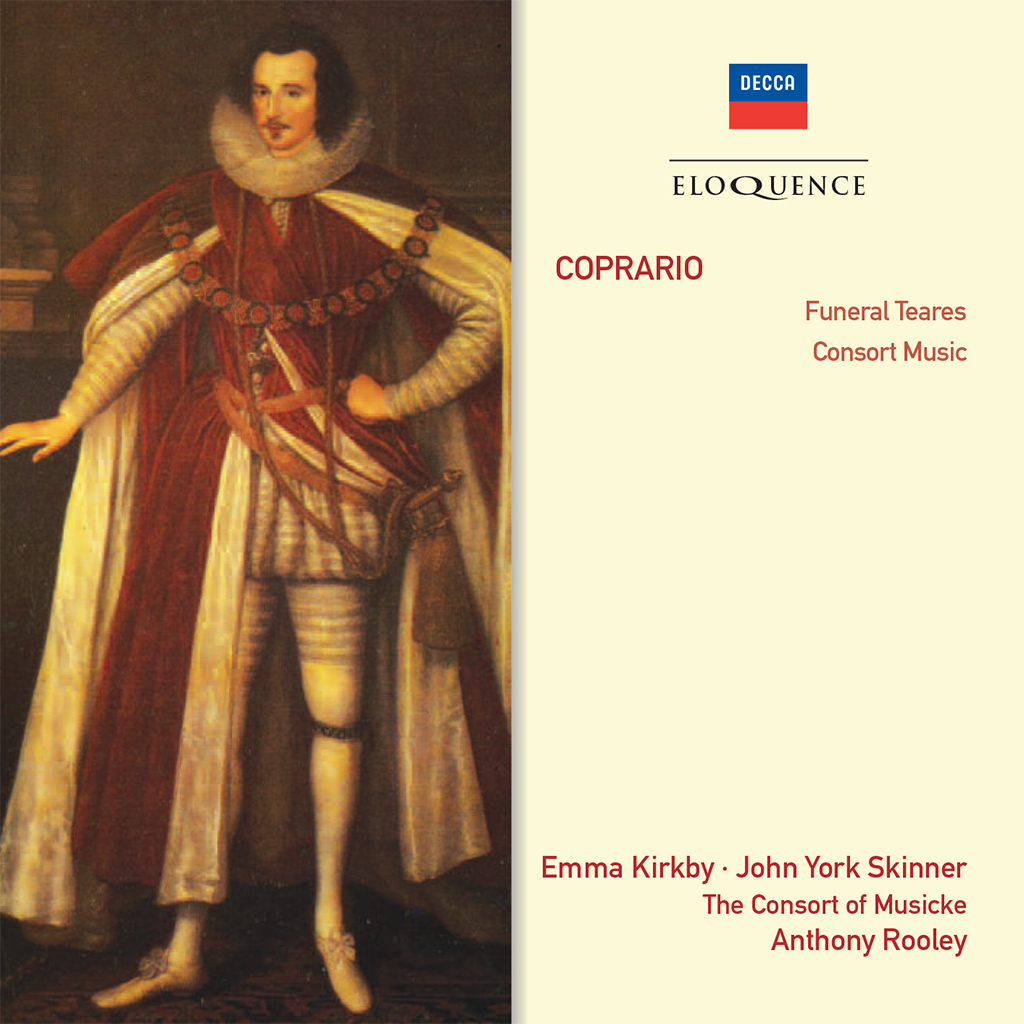
King James was paranoid, neurotic, suspicious and an immensely jealous man. Anyone at Court who had individuality, a certain ‘swagger’ and self-assuredness was a sure target of his unsure outlook. Such a one was the Earl of Devonshire, Charles Blount along with his beautiful Penelope – a very striking pair but who became the brunt of much ugly gossip and malignant whispering, generating from the King himself and perpetuated by his immediate self-serving courtiers. In this poisoned atmosphere, Blount died unexpectedly, after a brief illness – leaving Penelope alone with the vile rumours rife. The song-cycle Funeral Teares, the very first in the English language, was created to assuage her grief and a sincere attempt to lay to rest some of that gossip.
John Coprario’s sets for two violins and bass viol duets are the product of his association with the English court in the 1620s. From about 1622 there was a group of musicians called ‘Coperario’s Musick’, patronised by Prince, and after 1625, King Charles. It is likely that the Consort Music of this recording was written for this group of players.
This is early music at its most intimate and the listener cannot help be drawn in as the exquisite viol consorts maintain that thoughtful meditation as four centuries of passing time fall away.
This is the L’Oiseau-Lyre recording’s first release on CD.
JOHN COPRARIO
Funeral Teares
Consort Music
The Consort of Musicke
Anthony Rooley, director
Recording Producer: Peter Wadland
Balance Engineer: Martin Haskell
Recording Location: Decca Studios, West Hampstead, London, UK, December 1978
‘an extraordinary work’ … proceeds through an impassioned elegiac rhetoric quite individual in the English writing of the period. It is this spirit which is caught so well on this recording, by an ensemble who have become justly regarded for their mastery of the intimate and passionate style, its accents and spirit of declamation.’ Gramophone
